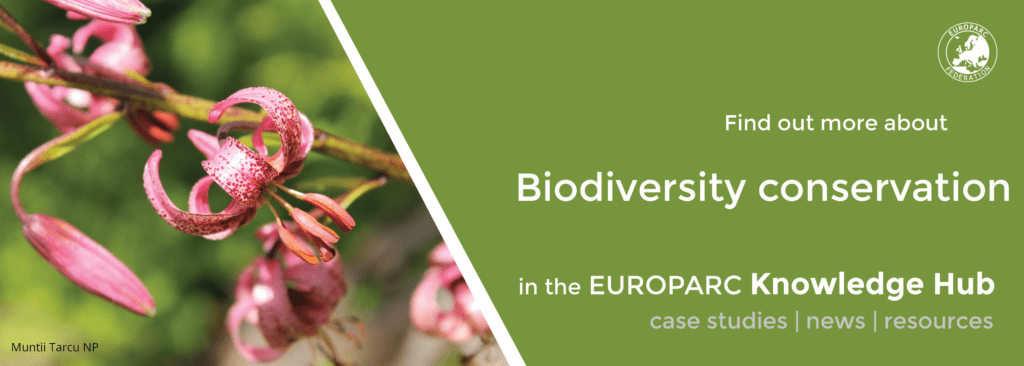Global Biodiversity Outlook 5. High time to turn the tide!
EUROPARC’s President Ignace Schops responds to the publication of the Global Biodiversity Outlook 5, published yesterday by the UN Convention on Biological Diversity
The UN Convention on Biological Diversity published yesterday the Global Biodiversity Outlook 5. The report offers an overview of the state of nature, gives an update on the Aichi targets, agreed in 2010 in Nagoya (COP 10) and provides best practices for getting on track.
None of the biodiversity targets agreed by the United Nations ten years ago have been met. The silent collapse of our natural ecosytems is ongoing!
In general, the causes of ecosystem degradation and massive species extinction are the large-scale destruction of habitats, especially for agricultural purposes – such as tropical deforestation to produce palm oil, soya and beef – overexploitation – such as overfishing, poaching and the illegal trade in animal species – pollution and climate change.
To turn the tide, the report calls for a shift away from “business as usual” across a range of human activities. The report outlines eight transitions that recognize the value of biodiversity, the need to restore the ecosystems on which all human activity depends, and the urgency of reducing the negative impacts of such activity. The report shows that governments will need to scale up national ambitions and ensure that all necessary resources are mobilized and the enabling environment strengthened.
According to UN Secretary-General António Guterres,
the corona crisis demonstrates the need to rethink the relationship between man and nature and work towards sustainable recovery.
And a lot of money is already available, according to the report: USD 78 to 91 billion a year (EUR 65 to 76 billion). But this is by far not enough. To get the picture: 500 billion is spent annually on fossil and agricultural subsidies.
I was present in 2010 in Nagoya, Japan. At that moment I was really excited and truly believed the Aichi targets could be met in the next decade. Unfortunately, I was wrong. What I already knew at that time was that we all can make a difference. So I promised myself to widen my wings.
EUROPARC Federation takes a leading role in Europe when it comes to the management and -restoration of protected areas. We can prove to the world – evidence-based – that nature conservation works! And that’s good news! Species react positively on conservation and restoration and our protected areas are the safe havens for and the cradles of wildlife from which the dispersal of species to the wider world can start again.
We need to bring nature into the hearts of people.
Show nature’s importance for our human survival as well! We need to emphasize that countries need to bring biodiversity into the mainstream of decision-making and factored into policies across all economic sectors.
Let’s not destroy what keeps us alive! Let’s jointly show a transformative change is possible and that following nature’s design – is the best guidance we can use!
Ignace Schops
President
